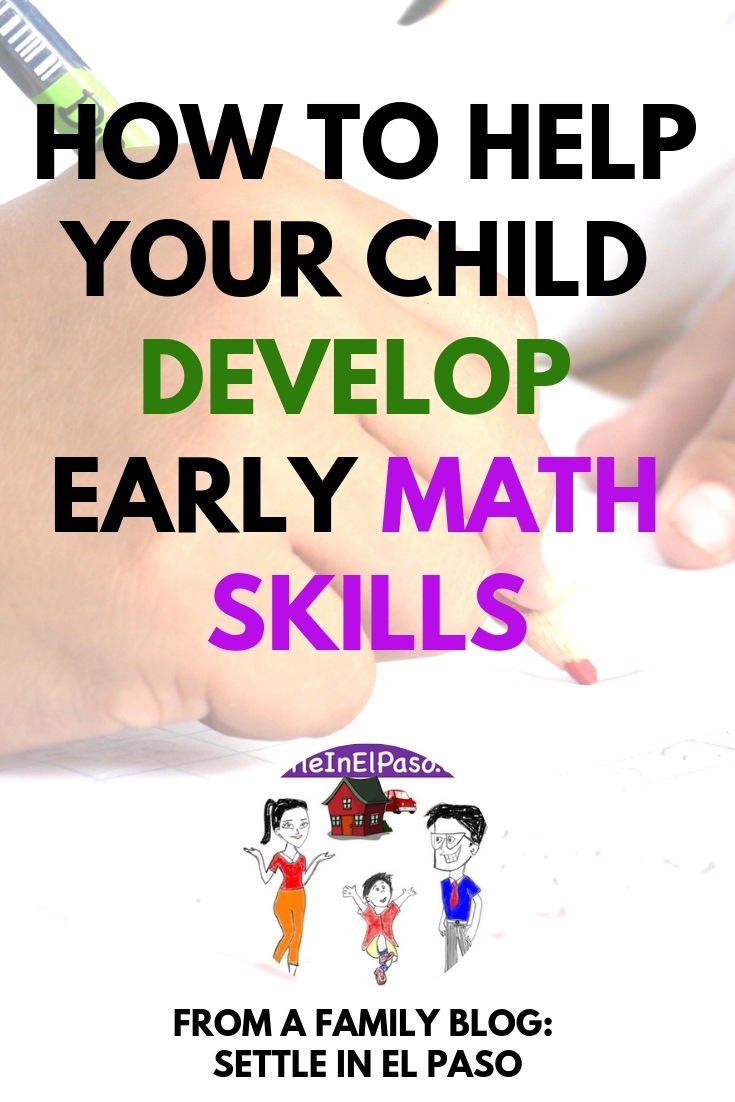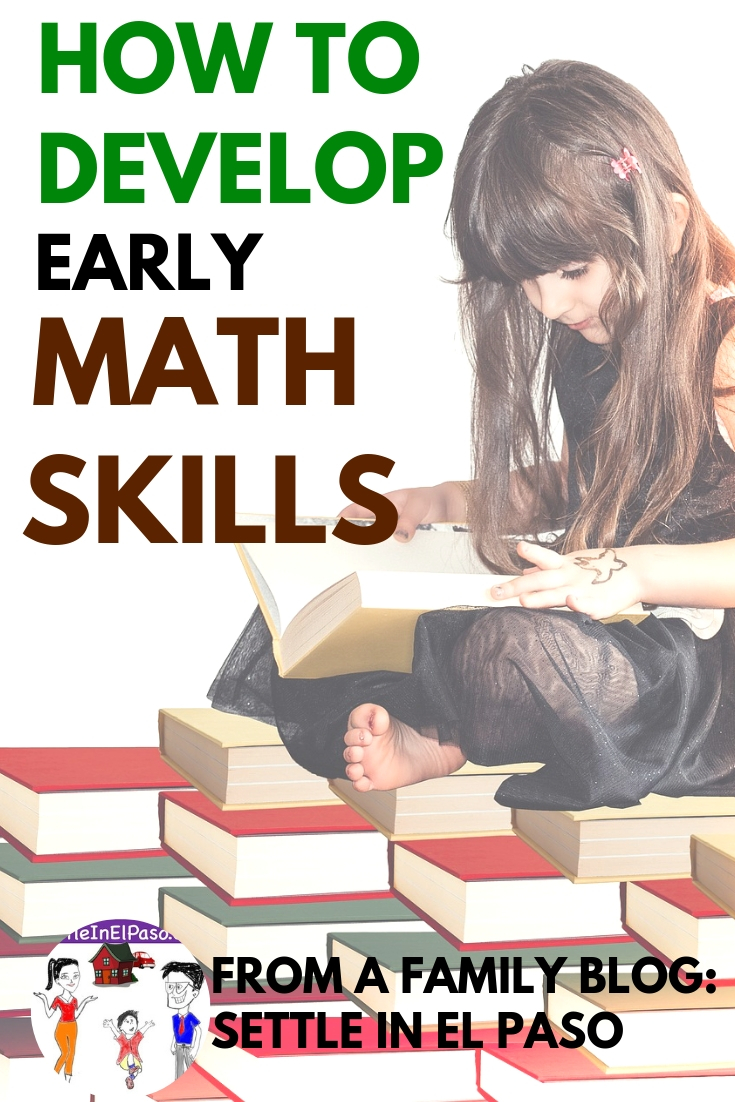
I have seen too many of my friends blaming elementary school teachers for the poor math-skills of their children. It is easy to blame teachers for the failure of our kids. That way, we can hide limitations on our end.
A major part of growing up depends on what academic environment we develop at home. Performance of our kids at elementary school is somewhat an accumulation of what we teach our kids at home and what curriculum the school district offers at school. Blaming teachers is insanely foolish and nothing but an attempt to hide from our parenting responsibilities.
Now, let us go back to the topic of math. I do not know much about other towns or even other states but many schools under the El Paso School District seem to use a reasonable amount of math right from the kindergarten and the first grade. Reinforcing the concepts covered in the class at home is the least we can do as parents. Whether our children will become math-savvy or not depends on how much they enjoy math and practice it. All we can do is create the right environment.
I am providing a few tips to help kindergartners or first graders foster their math skills. Many of the tips are also applicable to upper-level elementary classes. One thing we need to remember is that skill development always begins at home.
To reach a larger audience, we have made the following Youtube video on this topic.
Make sure that your child understands — Math is not hard
Make sure your child understands that math is not hard and math is fun. Fear of math in the early stage propagates in upper-level classes of the elementary, middle, as well as in high school. Therefore, it is of utmost necessity to make sure that math is really taught early. Moreover, teach math early as a part of daily life, not quite as formal lessons.
Build a collection of math resources for your child
Build your own simple resources first. Such recourse can simply include planning what you will speak about with your child.
Always start with simple examples from real life. “You have three oranges, I have given you two more. How many oranges do you have now?” This is probably too simple if your child is going to kindergarten or in the first grade. Yet, asking such simple questions is a great start because you do not want to frustrate your child in the very beginning by asking what is the quotient after dividing one hundred by three.
Anyway, prepare simple questions from real life to teach math. In the kindergarten, questions can be as simple as what is the next number of ten, so and so forth. By the end of kindergarten, if your child understands the concepts of addition and subtraction, then her/his life will be easier in the first grade and eventually in upper levels.
You will find millions of worksheets over the internet suitable for your child’s practice. Education.com has free math worksheets for different levels including kindergarten and the first grade. Khan Academy also has ample resources for early math education.
Practice what is taught in the school
Keep track of what is taught in the class. In the kindergarten and in the first grade, you might not see a lot of homework. From the limited homework, you will easily realize what topics are being covered in your child’s class.
During weekends and breaks, make sure to practice the topics at least half an hour a day. We do not want our kids to suffer from learning loss of math during weekends, breaks, or in holidays.
Consider math a skill
Parents send their kids for violin, piano, ballet dance, or even Taekwondo lessons. I don’t see any reason why math cannot be considered a skill in a child’s life.
If the kid wants, she/he can go for Math Olympiads, or children can use the skill when they grow up — whether they become scientists, or accountants, or even a basketball player who can calculate the angle to be used and the momentum to be created to throw the ball to the basket.
Math is utterly the generic-most topic which is appreciated in any discipline. You name a discipline — in medicine? Yes. All doctors and pharmacists are good at math. How do you think they calculate the amount and concentration of medicine a patient needs?
Historians? Definitely, yes. How did, you think, Tom Hanks in The Da Vinci Code solve the mystery of the Grail? I am kidding but you got the point. Great historians discover hidden history based on evidence and mathematical skills.
What I am trying to say is — math is not something that is just practiced in the engineering disciplines. It is something that brings greatness in any discipline. I think this is the only subject that can directly bring greatness in any field.
Make math fun and a part of life
Some may argue — what kind of parents we are, who keep their children learning even during breaks. My argument back is — we do not stop eating meals during a break. We may play the violin during vacations. Why can’t we just do the fun of math for half an hour each day during breaks?
It is easy to offer a lot of fruitless fun for our children. If you can make those fun a part of active learning, then you have converted the fruitless fun to a fruitful one. Math is a skill that is the easiest to incorporate in daily activities. Some examples are: play the monopoly game, let your child count grocery items while shopping, seek help from your children in budgeting, and measure lengths of flower beds when you are in a garden with your child. Possibilities are endless. In my experience, younger kids take math activities as fun. Therefore, starting early is possibly the best way to make math fun for our kids.
Pretend play — Little ones are helpers. Let them help you.
I recently played some games with a few groups of kids — varying from kindergarteners to second graders. In those games, I told the kids that I need help in counting things. There are twenty birds. Ten flew away. How many are left — kind of questions.
Groups with younger kids received simpler questions. Groups with older kids received a little harder questions. Harder questions are something like — I have twenty skittles. I want to give four of you equal amount of skittles. How many skittles each of you will get? I acted as if I am struggling to figure out the answers. I had the real skittles with me.
Children had a lot of fun. They were seriously helping me out in figuring things out. You can go the extra mile with a little bit of pretend play with kids with planned math exercises.
Start early
Starting the development of math skill early has numerous benefits: (1) Your child will enjoy school a lot, (2) neurons flourish well with math; therefore, your child will enjoy all the subjects covered in school, (3) the chances to get enrolled in the gifted and talented program will increase.
Stay ahead
Let us try to remember our childhood. I have closed my eyes. ? I am walking down memory lane … ?♀️?♀️?♀️?♀️
Oh my God! Here is what I remember. Life could be better if there was no homework! ?
Now, why was homework a burden? That was because homework created cognitive pressure in my mind. How can we eliminate the cognitive pressure?
Here is how we can eliminate the cognitive pressure and make math homework fun. Start math pretty early. Teach your child math topics of the next grade. It is quite feasible during preK and the elementary school years. Shape the clay when it is still soft.
With being familiar with advanced topics at home, homework from school will feel easy. There will be NO fear of math to make life miserable.
If you make math easy in the elementary years, practically you advance your child for the rest of her/his life.
Math DVD lessons
Jason Gibson from mathtutordvd.com provides The 1st – 7th Grade Math Tutor – 7 Hour Video Course (Amazon affiliate link), which made an enormous impact on Dear Son’s math interest. Dear Son watches the DVDs fondly. Dear Son (first grader) was telling me about repeating decimals a few days ago. This surprised me. It is fascinating how Jason simply, yet captivatingly, explains systematic ways to solve fundamental math problems.
I highly recommend the seven Hour Video Course (two DVDs) for elementary school students. Please do not expect shiny animated videos or music. Jason used a whiteboard and markers to teach math. This is the reason why I bought the DVDs for Dear Son in the first place.
Relevant articles
Subscribe to receive notifications on our new posts.









Comments
Facebook Comments